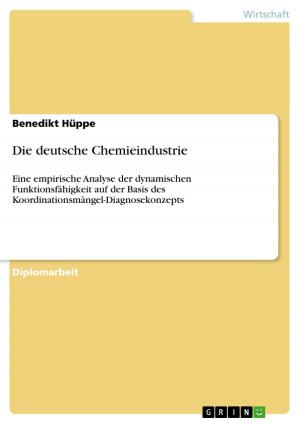An analysis of Unilever's legal form, financial performance and business strategy
Business & Finance, Management & Leadership, Management| Author: | Letizia Zisa | ISBN: | 9783640906543 |
| Publisher: | GRIN Publishing | Publication: | May 4, 2011 |
| Imprint: | GRIN Publishing | Language: | English |
| Author: | Letizia Zisa |
| ISBN: | 9783640906543 |
| Publisher: | GRIN Publishing |
| Publication: | May 4, 2011 |
| Imprint: | GRIN Publishing |
| Language: | English |
Seminar paper from the year 2010 in the subject Business economics - Business Management, Corporate Governance, grade: 1,7, Leeds Metropolitan University, language: English, abstract: Unilever Group PLC 'Unilever is one of the world's leading suppliers of fast moving consumer goods. We aim to meet everyday consumer needs for nutrition, hygiene and personal care with brands and services that help people to feel good, look good and get more out of life' (Unilever, Director's Report, p. 17). It generates revenues through four main business segments: savoury, dressings and spreads, personal care, ice cream and beverages and home care. Vision & Mission Statement A company´s mission can be defined as 'the overriding purpose in line with the values or expectations of stakeholders' (Johnson & Scholes, 2005, p.13). 'We work to create a better future every day. We help people feel good, look good and get more out of life with brands and services that are good for them and good for others. We will inspire people to take small everyday actions that can add up to a big difference for the world. We will develop new ways of doing business with the aim of doubling the size of our company while reducing our environmental impact'. Unilever's legal business form Commonly, there are three types of business organisations; sole traders, partnerships, limited companies. Unilever is a 'Public Limited Company' (PLC) which means that it is permitted to advertise its shares to the public on the stock exchange market and which is registered as a public limited company (Companies Act 2006, 58 (1)). 'Public companies are aimed at securing investment from the general public' (Lowry et al., 2006, p.9). A public company cannot commence business or lend any capital unless it has been issued an 'S 117 Certificate' and has a registered office (Companies Act 2006, 86). Such a certificate is issued when the Registrar identified that the nominal value of the company's share capital is not less than the authorised £50,000 (Companies Act 2006, 761 (1)). A public company is either limited by shares or by guarantee with a share capital and must have at least 2 directors (Companies Act 2006, 154). Major Duties of a corporation Since Unilever is a PLC it has major duties to fulfil. It must publish a prospectus giving a detailed and accurate description of the company's plans. Consequently, Unilever's directors have the duty to prepare a directors' report for every financial year of the company, to keep their accounting books and records, (Companies Act 2006, 386) prepare annual accounts and hold an Annual General Meeting.
Seminar paper from the year 2010 in the subject Business economics - Business Management, Corporate Governance, grade: 1,7, Leeds Metropolitan University, language: English, abstract: Unilever Group PLC 'Unilever is one of the world's leading suppliers of fast moving consumer goods. We aim to meet everyday consumer needs for nutrition, hygiene and personal care with brands and services that help people to feel good, look good and get more out of life' (Unilever, Director's Report, p. 17). It generates revenues through four main business segments: savoury, dressings and spreads, personal care, ice cream and beverages and home care. Vision & Mission Statement A company´s mission can be defined as 'the overriding purpose in line with the values or expectations of stakeholders' (Johnson & Scholes, 2005, p.13). 'We work to create a better future every day. We help people feel good, look good and get more out of life with brands and services that are good for them and good for others. We will inspire people to take small everyday actions that can add up to a big difference for the world. We will develop new ways of doing business with the aim of doubling the size of our company while reducing our environmental impact'. Unilever's legal business form Commonly, there are three types of business organisations; sole traders, partnerships, limited companies. Unilever is a 'Public Limited Company' (PLC) which means that it is permitted to advertise its shares to the public on the stock exchange market and which is registered as a public limited company (Companies Act 2006, 58 (1)). 'Public companies are aimed at securing investment from the general public' (Lowry et al., 2006, p.9). A public company cannot commence business or lend any capital unless it has been issued an 'S 117 Certificate' and has a registered office (Companies Act 2006, 86). Such a certificate is issued when the Registrar identified that the nominal value of the company's share capital is not less than the authorised £50,000 (Companies Act 2006, 761 (1)). A public company is either limited by shares or by guarantee with a share capital and must have at least 2 directors (Companies Act 2006, 154). Major Duties of a corporation Since Unilever is a PLC it has major duties to fulfil. It must publish a prospectus giving a detailed and accurate description of the company's plans. Consequently, Unilever's directors have the duty to prepare a directors' report for every financial year of the company, to keep their accounting books and records, (Companies Act 2006, 386) prepare annual accounts and hold an Annual General Meeting.















